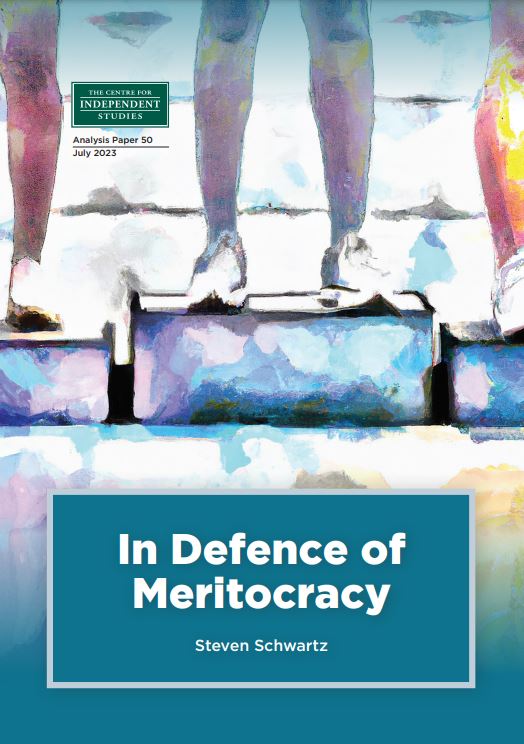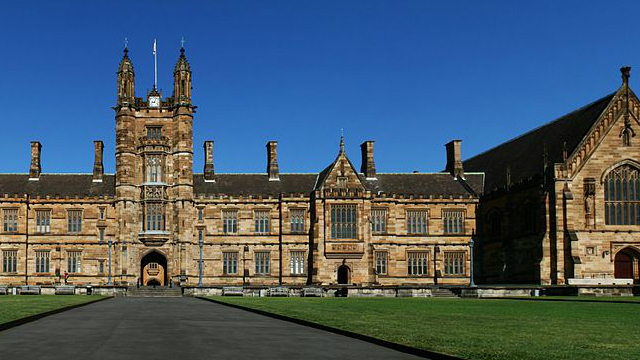
Introduction
Democracies, dictatorships, and all other forms of government face the same dilemma—how to allocate scarce social goods such as education, jobs, and prestige. The method they choose reflects their social values. For Plato and Socrates, the community’s needs always come first. So, in their ideal city (Kallipolis), a strong government assigns education and employment opportunities in ways that maximise society’s overall benefit. An individual’s interests and desires are secondary; the government has the final say on how each person can best serve the community. In the Middle Ages, feudal societies relied on connections and nepotism to distribute social goods. In more recent times, cultures that value liberty, natural rights, and individual agency rely on ‘merit’ to decide who wins what in the game of life.
The most often quoted description of a merit-based allocation system comes from Napoleon, who boasted that his motto was la carrière est ouvert aux talents (the career is open to talent). This was Napoleon’s way of saying that access to education, positions in the civil service, and promotions in the military should go to those best able to succeed. Drawing on the ideals of the French and American revolutions, Napoleon argued that everyone should have an equal opportunity to compete for advancement. Success should not depend on family ties but on ambition, hard work, and ability. Born in obscurity, without powerful connections, a career open to talent neatly encapsulated Napoleon’s life story.
In Napoleon’s time, assessing merit using objective measures was already a familiar idea; China had used civil service examinations for centuries. But the concept of merit-based advancement took on greater resonance in the period following the American and French revolutions. Political leaders saw it as not only an antidote to nepotism and family influence but also a way of incentivising the ‘best and brightest’ to contribute to economic growth, thereby benefitting everyone in the population.
To assess talent, France created an array of examinations for entry into advanced education, the military, and public service. Napoleon’s ideas found robust support in the USA, where Horatio Alger’s novels about impoverished youths who rose in society through intelligence and perseverance were wildly popular. The idea spread quickly. In countries around the world, selection by merit has become the norm; not just for jobs or education but for just about everything. Olympic hopefuls are required to excel at their chosen sport. Musicians who aspire to join symphony orchestras have to prove their expertise. Universities rely on school marks and entrance examinations to select students. In each case, there is unquestioned agreement that society should reward exemplary performance.
However, some writers have recently questioned the fairness of merit-based rewards. A spate of cautionary books alert us to the “merit trap”, the “tyranny of merit”, and the “meritocracy myth.”[1] The authors of these books — mainly academics — are particularly critical of merit-based entry into universities. Their focus on universities makes sense, given higher education’s crucial role in determining social standing. Elite universities are the marshalling yards for the gravy train of life. Their graduates gain access to the best post-graduate and professional education, become members of influential social networks, and enjoy the most fulfilling and lucrative careers. Instead of levelling class and economic differences, critics of merit-based advancement argue that universities increase inequality by enrolling students who come mainly from middle-class and wealthy families. When they graduate, these students go on to high-paying jobs open only to graduates. They tend to marry one another and send their children to elite universities, creating a never-ending ascendancy of wealth and status.
Attempts to widen participation in higher education by recruiting more minority students have not solved the problem. Although minority students are certainly more common on campus today than in previous generations, few come from financially struggling families. They are from the same middle-class and professional backgrounds as traditional students. This outcome is not in the least surprising; the best way to get to the top of the social ladder is to start there.
Like Napoleon, universities do not always live up to their egalitarian ideals; the media have given considerable coverage to university admission scandals.[2] However, to claim that ‘merit is a sham’ and ‘not a genuine excellence’ suggests that there is a better way to distribute society’s scarce resources. But is there? This paper represents an attempt to answer this question.
The Rise of the Meritocracy
Michael Young was a British sociologist, but he was no armchair academic. He not only devoted his life to studying society but also to ‘improving’ it. He aimed to replace Britain’s class-ridden social order with a “Socialist Commonwealth of Great Britain — free, democratic, efficient, progressive, public-spirited, its material resources organised in the service of the British people.”[3]
Young supported the creation of a National Health Service, National Insurance, public housing, and greater access to education. Of the various means to a better society, Young viewed education as the most significant.
After World War II, university attendance increased dramatically in most developed countries. A university degree became a passport to the middle class. By creating the Open University, Young gave all Britons, whatever their background, the opportunity to start their upwardly mobile journey. (Since its creation in 1969, the Open University has enrolled more than two million students, and not only from Britain.[4]) As an idealist, Young was proud of his new university. He believed that everyone deserved a chance to move up in the world; family ties, wealth, class, race, and religion, should never be barriers to advancement.
Still, Young harboured qualms about how a merit-based society might evolve. He expressed his misgivings in a book titled The Rise of the Meritocracy.[5] His story is set in 2034, when wealth and power are no longer inherited or shared among cronies. Instead, ‘merit’ is the main driver of social advancement. The country has a ruling class, but it is “not an aristocracy of birth, not a plutocracy of wealth, but a true meritocracy of talent” [emphasis added].[6]
Young was the first person to use the word ‘meritocracy’ in print, but it quickly entered the vocabulary of politicians. Lee Kuan Yew, the first Prime Minister of Singapore, proudly described his country as a “meritocracy, where people rise by their own merit, hard work, and performance.”[7] Former British Labour prime minister Tony Blair called the creation of a meritocracy an “indispensable part of building a decent and prosperous society.”[8] Theresa May, a former Tory British prime minister, wanted “Britain to be the world’s greatest meritocracy.”[9] Closer to home, William Wentworth, founder of the University of Sydney, and Robert Menzies, an Australian prime minister who greatly expanded higher education, expressed similar sentiments.
Surprisingly, Young disagreed. The Rise of the Meritocracy was not a description of an egalitarian utopia; it was a stark look at a dark dystopia. In Young’s novel, prestige, power, and wealth accrued to the naturally talented who married one another. They used their influence “to gain unfair advantages for their offspring.” In this way, the meritocracy became a self-perpetuating dynasty. By 2034, society had split into two groups: “the eminent [who] know that success is a just reward for their own capacity, their own efforts,” and a lower class taught to think of themselves as failures.”[10]
At age 86, decades after writing The Rise of the Meritocracy, Young’s view of merit-based advancement remained bleak:
If meritocrats believe, as more and more of them are encouraged to, that their advancement comes from their own merits, they can feel they deserve whatever they can get. They can be insufferably smug, much more so than the people who knew they had achieved advancement not on their own merit but because they were, as somebody’s son or daughter, the beneficiaries of nepotism. The newcomers actually believe they have morality on their side. So assured have the elite become that there is almost no block on the rewards they arrogate to themselves. The old restraints of the business have been lifted, and, as [my] book predicted, all manner of new ways for people to feather their own nests have been invented and exploited. Salaries and fees have shot up. Generous share option schemes have proliferated. Top bonuses and golden handshakes have multiplied.[11]
As a committed socialist, Young viewed a society in which people are ranked and rewarded according to talent as no improvement over the old world of inherited wealth and power. Both lead to a fractured society, in his view. Ironically, Young rather diminished the force of his critique of merit when he donned an ermine cloak and became Baron Young of Dartington, a member of the British House of Lords. No one ever asked him whether he merited this sinecure, but he was doubtless correct on one point — many high achievers believe that they are the authors of their own success.
Self-Satisfaction at the Top of the Ivory Tower
I learned about the self-belief induced by merit-based success when I participated in a debate at the Oxford Union (a venerable university debating society). The motion before the house was: “University admissions should not rely on marks alone.” I was there because I led a controversial government review on admissions to English universities, and I was known to favour the motion.[12] My opponent, leader of the negative side, was Chris Woodhead, Her Majesty’s former chief inspector of schools.
During the debate, Woodhead likened university applicants to participants in a footrace. Just as the runner with the fastest speed wins the race, applicants with the highest marks and entrance examination scores deserve to be selected for university admission. Woodhead argued that considering anything other than academic performance — the quality of the school applicants attended, their family income or any obstacles they may have had to overcome — was unfair because it could lead to someone with lower qualifications getting in ahead of someone with higher ones.
I argued that the footrace analogy was flawed. In a race, runners all begin from the same starting line. This is not true in life. Wealthy families can provide their children with high-quality education, extra tutoring, and cultural experiences. Other applicants are not so lucky; they are disadvantaged by illness, poverty, or circumstance. Consequently, their marks and examination scores may not reflect their true academic potential. By ignoring factors other than marks, the competition for university admission is like a footrace in which the organisers give some runners performance-enhancing drugs.
I argued that to ensure that everyone has an equal opportunity to compete for admission, universities should consider the social and economic context in which an applicant’s marks were earned. It is impossible to guarantee everyone an optimal upbringing, but it is possible for universities to design admissions processes that give all applicants with talent, brains, and ambition a fair opportunity to compete for a place.
I lost that debate and went on to lose a similar one in the Cambridge Union. In both cases, the student audience (who served as judges) believed that marks alone should determine admission to a university. Despite the passage of time and the criticisms of meritocracy, more recent debates on similar issues have produced similar outcomes.[13] Student audiences still believe that considering contextual factors is unfair because it may result in applicants with high marks missing out to those with lower ones.
Young would not have been surprised that students whose academic success got them into elite universities would hold this view. However, he may have been startled to learn that almost everyone shares their belief, including those who are nowhere near the top of the social ladder. Polls conducted by the Pew Research Centre think tank found that in every demographic category — Black, white, old, young, Asian, Latino, male, female, Democrat, and Republican — a majority believed that university admissions should be based on merit as measured by marks, examinations scores, and other indices of scholarly achievement.[14]
Unlike Britain and the USA, Australia does not have super-selective, iconic universities. The overwhelming majority of Australian university students live at home and attend a nearby campus. Still, even in Australia, there is a hierarchy. A combination of student demand and restricted places make some universities and courses (medicine, for example) more difficult to enter than others. Entry to these high-demand courses is determined by merit as represented by the Australian Tertiary Admission Rank (ATAR). An ATAR rank is a number between 0.00 and 99.95 that indicates a student’s academic achievement relative to others in their age group. (ATARs below 30 are not publicly reported.) Although the ATAR’s two-decimal precision is almost entirely spurious, ATARs are widely perceived as ‘fair’ because they reflect ‘merit’, and, for most people, ‘merit’ is all that counts.
Is the public’s faith misplaced? To some extent, the answer is yes. As noted earlier, family income, school quality and other contextual factors influence the grades and examination scores that form the basis for ATARs. By ignoring the social and physical challenges applicants had to overcome, a system based solely on ATARs underestimates the academic potential of disadvantaged applicants while over-valuing those with more fortunate backgrounds. As discussed later in this paper, there is considerable room for improving university admissions processes and criteria. Indeed, measures of merit must be improved if we want to ensure that all applicants have a fair equality of opportunity to compete.
Would more valid, reliable, and fairer admissions processes satisfy the critics of merit-based selection? The answer is no. Critics of meritocracy believe selection outcomes would still be inequitable because the whole notion of merit-based selection is flawed and inherently unfair. Even if it were possible to achieve perfectly fair equality of opportunity for all applicants, critics say it would not make any difference because such a system would still lead to unequal outcomes. The following section addresses their critique.
Dissatisfaction at the Top of the Ivory Tower
Although they work at highly selective, world-famous universities, Yale professor Daniel Markovits and Harvard professor Michael Sandel believe their universities’ selection processes are unfair. They have each written books denouncing merit-based advancement. Like Young, they are fierce critics of a system from which they have personally benefitted.
In The Meritocracy Trap, Markovits picks up on Michael Young’s theme — merit-based rewards stratify society — and then proceeds to blame merit-based selection for practically every conceivable social ill.[15] According to Markovits, income inequality, opioid deaths, mental illness, violent crime, and even suicide are the result of a system that uses merit to allocate social resources. He believes making universities more inclusive by widening access to higher education to currently unrepresented groups would not help. “The afflictions that dominate American life arise not because meritocracy is imperfectly realised, but rather on account of meritocracy itself.”
In Markovits’ view, meritocracy has “become precisely what it was invented to combat: a mechanism for the dynastic transmission of wealth and privilege across generations.”[16] “Merit is a sham,” he writes. It “is not a genuine excellence but rather — like the false virtues that aristocrats trumpeted in the ancien regime — a pretence, constructed to rationalise an unjust distribution of advantage.”
Like Karl Marx, Markovits characterises society as an ongoing conflict between social classes. Members of the ‘ruling class’ are avaricious, uncaring, and immoral, afflictions from which members of the working class are apparently immune. He fills his book with dismal descriptions of modern life. “Meritocracy traps entire generations inside demeaning fears and inauthentic ambitions.” Like Young, Markovits believes members of the meritocracy use their influence to benefit their children at the expense of those whose parents have lower levels of education or income. University admission scandals, in which parents connive with corrupt admissions officials to get their children into elite universities, are not aberrations; they are precisely how a meritocracy works.
Michael Sandel’s book, Tyranny of Merit: What’s Become of the Common Good?[17] is less hyperbolic than Markovits’s (and much easier to read), but it makes the same point. Using merit to determine who advances in life is inherently unjust. Even if it were possible to ensure that everyone has an equal opportunity to compete for social goods (such as entry to an elite university), society would remain stratified because innate differences in talent and perseverance would produce unequal outcomes.
Like Young and Markovits, Sandel believes success in a merit-based system leads winners to consider themselves solely responsible for their own success. They fail to appreciate that luck and social circumstances play a crucial role. Moreover, the haughty self-regard of the winners leads them to demean those whose work doesn’t require a university credential. “A perfect meritocracy banishes all sense of gift or grace,” he writes. “It diminishes our capacity to see ourselves as sharing a common fate. It leaves little room for the solidarity that can arise when we reflect on the contingency of our talents and fortunes.”[18]
According to Sandel, “Learning to become a plumber or electrician or dental hygienist should be respected as a valuable contribution to the common good, not regarded as a consolation prize for those who lack the SAT [university admission test] scores or financial means to make it to the Ivy League.”[19] He does not provide any empirical data to demonstrate that the wider society disrespects plumbers, electricians, and dental hygienists. Nor is it self-evident that these professionals would have chosen to study at Harvard even if they had aced the SAT. After all, plumbers and electricians make more money than many (perhaps most) university graduates.[20] Of course, there are poorly paid workers who perform essential services (aged care workers, food delivery drivers, hospital orderlies). The Covid 19 pandemic made it obvious how dependent we are on their work. But it is unlikely that a Harvard degree would automatically increase their happiness and self-respect. Higher pay and greater job security would probably work much better.
Sandel’s views about plumbers and electricians may reflect the prejudices of Harvard academics, but he is undoubtedly correct when he says universities can have adverse effects on social mobility. Applicants without higher education are barred from many well-paying jobs, even when they have the experience and skills to perform them successfully. Sandel deems such credentialism “the last [publicly] acceptable prejudice.”[21]
Critics of merit-based rewards have been influential in higher education. In addition to student selection, the hiring of academics, the award of scholarly prizes, and even which research articles scholarly journals publish are increasingly determined by group membership (sex, social class, race), with excellence treated as a second-order requirement. As noted earlier, academics may think this way, but the public does not. Most people believe that downgrading achievement in favour of group identity is unjust and leads to unfair outcomes. They want more emphasis on merit, not less.
Too Much Merit or Not Enough?
If meritocracy is cruel and unfair, and social rewards remain scarce (not everyone can go to Harvard), what selection process do critics propose to use instead of merit? Few bother to say. They simply point out that meritocratic selection creates winners and losers, an outcome they consider unfair. But is it? Great athletes differ from most people in physical strength, acuity, and dexterity. Choosing such people to compete in the Olympics often leads to fame and fortune. It’s hard to see in what way this is unfair.[22] Nor is it obvious why famous entertainers, fashion models, and writers — whose success derives from their talents and appearance —are undeserving.
Would the world be a better place if everyone were physically, mentally and aesthetically equal? This question formed the premise of Kurt Vonnegut’s 1961 satire, Harrison Bergeron.[23] The story is set in 2081, when the government is determined to make everyone perfectly equal. To keep anyone from being stronger, more attractive, or more intelligent than anyone else, the authorities force brilliant people to wear earphones that transmit noises designed to distract them from thinking. Similarly, strong people must carry around heavy weights, while beautiful people must cover their faces with masks. The government has achieved total equality, but at the cost of dull mediocrity — no high culture, no sporting contests, and no scientific advancement. Talented people who can expect no reward for their achievements have no incentive to work, and the economy fails to grow. Everyone is objectively equal, but they are also equally poor, unhappy and oppressed.
In the world outside the rarefied air of elite universities, the chief complaint is not that merit is rewarded but that it often isn’t. The US Supreme Court recently upheld a case brought by Asian students who were refused entry to Harvard University in favour of students from other minority groups with less stellar academic backgrounds. The Court agreed with the plaintiffs and declared such biased decision-making illegal. The Court’s ruling will reverberate beyond the ivy-covered walls of American universities. It will stimulate an international debate about how universities measure and apply merit when selecting students. It will also impact how employers assess merit when appointing staff.
Let’s start the debate now, beginning with employers. Failing by Degrees, a widely cited Harvard Business School report notes that 61% of American employers admit rejecting applicants with the required skills and experience simply because they do not have a degree.[24] The report highlights the unfairness of degree inflation with a startling example. Sixty-seven per cent of job listings for the position of ‘production supervisor’ require university degrees. In comparison, only 16 per cent of people currently working in this role attended a university. Are the production supervisors currently working without degrees incompetent? Of course not. Employers are simply using degrees as a way to screen job applicants, even though the credentials they demand have no connection to the position’s duties.
By changing their definition of merit from holding a university qualification to possessing relevant skills and experience, employers would have access to a more extensive and diverse pool of potential employees whose experience and skills render them equally, if not better, qualified than applicants with degrees.
Turning to universities, a Supreme Court ruling in favour of the Asian student plaintiffs will force them to revise their selection processes. Sandel suggests a lottery for admissions; not for everyone, but only for those whose marks or examination scores are above a certain level. He argues that random selection reduces hubris by making it clear to successful applicants that they are not the sole authors of their success. (It is not clear whether Sandel believes Harvard professors should also be chosen randomly… perhaps he feels they are already sufficiently modest.)
It is undeniable that luck plays a role in any human endeavour. But because a selection system is imperfect does not mean throwing in a random element will make it fairer. Sandel’s suggestion would turn university admissions into an opaque game of chance in which admission decisions are impossible to predict or explain.
A better way to improve selection is to assess merit using valid measures. Personal interviews, for example, have repeatedly been shown to be useless for determining success in higher education. Universities use them as an excuse for rejecting applicants (such as Asian students) who would have otherwise been admitted.[25] Seemingly objective measures may also be biased. When I reviewed higher education admissions in England, I found that some institutions gave preferences to candidates who were Dux (valedictorian) of their school.[26] This policy produced biased outcomes because, in Britain, only private schools have a Dux.
As noted earlier, using a single criterion to select students (an ATAR rank, for example) can also bias outcomes by ignoring relevant background information. Research shows that disadvantaged candidates — who had the grit to struggle through poor schooling and achieve good marks — may have as much, or even more, potential for higher education than high-ranked candidates whose parents were able to support their children with private schooling.[27] Ignoring the context in which an ATAR is earned is like trying to assess an aptitude for piano by comparing those with years of practice to someone who has never had the opportunity to play one.
A merit-based selection process that takes background context into account is compatible with John Rawls’ well-known theory of Justice as Fairness.[28] Rawls argues that individuals tasked with designing a society from scratch without knowing what role they would be assigned (rich or poor, black or white, able-bodied or disabled), would opt for a society that provides everyone with fair equality of opportunity. This does not mean that everyone would literally be equal (as in Vonnegut’s story). Rawls understood that people are not physically, emotionally, or intellectually equal. He also accepts that the community benefits from providing more significant incentives to those whose exceptional capabilities benefit everyone. Rawls would not object to hospital surgeons receiving higher salaries than hospital janitors because the latter benefit from having the surgeons look after them. Nor would he object to those with the requisite resources building factories to provide jobs for those who need them. He would insist that everyone has a fair equality of opportunity to compete for social rewards and that any resulting inequality benefits those at the bottom of society.
All Australian universities agree; they grant extra ATAR points to disadvantaged students. (This is the same as lowering entry standards.) Giving a boost to underprivileged students is fair if universities can calculate how much the ATARs of disadvantaged students under-predict their performance at university. On the other hand, if the number of bonus points granted to disadvantaged students is simply the number necessary to ensure they are admitted, then the selection system is really a quota — a way of engineering the outcome of the admissions processes. Rawls’s theory would not support such quotas, as they violate the idea of fair equality of opportunity.
In contrast, critics of meritocracy frequently put forward quotas as a way to improve diversity. The critics believe universities and workplaces should mirror the population. Unfortunately, insisting company boards, parliaments, sporting teams and universities all reflect the distribution of different groups in the general population can lead to perverse outcomes. Robert Taylor illustrates this using a sporting analogy.[29]
The percentage of black American professional basketball players far exceeds their numbers in the wider population. Insisting that the number of black players reflects their share of the general population would mean fewer black basketball players than there are currently. In Taylor’s words,
The mere fact that a group is overrepresented … does not necessarily imply that they had unfair advantages: … similarly, underrepresentation does not always imply unfair advantages. (497-498).
Rawls believes that quotas violate commonly-held moral sentiments, which require all applicants to have a fair equal opportunity to compete. In a June 2020 referendum, Californians were asked to permit universities to discriminate among applicants using race and other forms of group identity. As Rawls would have predicted, the referendum was defeated by 57% to 43%.
Fortunately, there are ways to increase equal opportunity without instituting quotas. For example, universities and employers could create outreach programs to encourage qualified candidates from disadvantaged backgrounds to apply for admission and jobs. They can also provide candidates from under-represented groups with enrichment programs that would allow candidates to demonstrate their full potential. If their understanding of the effects of disadvantage is sufficiently precise, universities may also be justified in giving disadvantaged applicants extra ATAR points. However, rigging the system so that applicants from one group automatically receive places is the opposite of equal opportunity. It is unfair and leads to a divided, mediocre and economically poorer society.
Conclusions
Early 19th and 20th-century socialists supported meritocracy as a necessary corrective to the crushing nepotism and social stratification of the past. Conservatives, at the time, opposed it because it threatened traditional hierarchies. The positions are now reversed, with socialists preferring quotas and special treatment while the liberal right seeks equal opportunity. Such is the nature of modern politics.
Opinion polls, learned debates, and the recent California referendum result make it abundantly clear that the public is largely on the liberal side. People understand that a system of meritocracy may produce some degree of social stratification, but they believe the alternatives are much worse. A reward system based on group identity and quotas would reduce social solidarity, breed resentment and make Australia economically poorer.
The best way to address the drawbacks of merit-based selection is to break down artificial barriers, dismantle systemic biases, and ensure that everyone, whatever their background, has a fair shot at achieving their potential. Decades of experiments with various forms of socialism, communitarianism, and capitalism have all reached the same conclusion. Meritocracy works. Rewarding hard work, dedication, and talent incentivises those with extraordinary abilities to work harder, thereby providing economic and social benefits to everyone in society.
No one admires unearned advancement. Luck may give some people special talents, but even Mozart had to practise. Such hard work deserves reward. Shunning meritocracy is self-defeating both socially and economically. Instead, let’s strive to refine and perfect it. A truly liberal meritocracy treats all people fairly, acknowledges our shared humanity, and affords all members of society the opportunity to rise based on their merits. The great educator, Horace Mann, called education the great equaliser; it would be a tragic irony to condone unequal treatment to achieve it.[30]
Acknowledgements
This paper has been greatly improved with the advice of Simon Cowan. Any remaining errors belong solely to the author.
Endnotes
[1] M. Sandel, The Tyranny of Merit: What’s Become of the Common Good? (Farrar, Straus and Giroux, 2020); D. Markovits, The Meritocracy Trap: How America’s Foundational Myth Feeds Inequality, Dismantles the Middle Class, and Devours the Elite (Penguin: 2019); L. Guinier, The Tyranny of the Meritocracy: Democratizing Higher Education in America (Boston: Beacon Press, 2015); K. Yu, The Implementation of Inclusive Education in Beijing: Exorcizing the Haunting Spectre of Meritocracy (Lexington Books: 2014); S. McNamee and R. K. Miller, The Meritocracy Myth (Lanham, MD: Rowman & Littlefield, 2004)
[2] Price, J. (2021). Uni admission scams: we’re not the US, but it happens here. Sydney Morning Herald. 14 March. https://www.smh.com.au/education/uni-admission-scams-we-re-not-the-us-but-it-happens-here-20190314-p5145x.html
Taylor, K. (2021). Parents Paid to Open College Doors. Now They’re Spending to Limit Prison Time. New York Times. 3 Oct 2019. https://www.nytimes.com/news-event/college-admissions-scandal
[3] Appiah, KA. (2018) The myth of meritocracy: who really gets what they deserve? The Guardian. 19 October. https://www.theguardian.com/news/2018/oct/19/the-myth-of-meritocracy-who-really-gets-what-they-deserve
[4] About the Open University. (Accessed 27 May, 2023). https://www.open.ac.uk/about/main/strategy-and-policies/facts-and-figures
[5] Young, MD. (1958). The Rise of the Meritocracy. New York: Random House.
[6] Quotes from Appiah, Op Cit.
[7] Kwang RCF, et al. (Eds). (2011). Hard Truths to Keep Singapore Going. Singapore, Straits Time Press.
[8] Blair, A. (2005). Address at St Mary’s Island Community Centre, Chatham, Kent. 14 January. https://www.theguardian.com/politics/2005/jan/13/labour.speeches
[9] May, T. (2016). Britain, the Great Meritocracy: Prime Minister’s Speech. London: Prime Minister’s Office. 9 Sep.
[10] Quotes from Appiah, Op Cit.
[11] Young, MD. (2001). Down with meritocracy. The Guardian, 29 June. https://www.theguardian.com/politics/2001/jun/29/comment
[12] Schwartz, S. (2004). Fair admissions to higher education: recommendations for good practice. London: UK Department of Education. https://dera.ioe.ac.uk/id/eprint/5284/1/finalreport.pdf
[13] Oxford Union Society. (September and January 2022)
https://www.youtube.com/watch?v=cn1_jhqqNQ0&ab_channel=OxfordUnion; https://www.youtube.com/watch?v=cNi3XAkIOiA&ab_channel=OxfordUnion
[14] Gómez, V. (2022). As courts weigh affirmative action, grades and test scores seen as top factors in college admissions. Washington, DC: Pew Research Centre. https://www.pewresearch.org/short-reads/2022/04/26/u-s-public-continues-to-view-grades-test-scores-as-top-factors-in-college-admissions/
[15] Markovits, D. (2019). The Meritocracy Trap: How America’s Foundational Myth Feeds Inequality, Dismantles the Middle Class, and Devours the Elite. (New York: Penguin).
[16] Staff Writers. (2020). A History of Privilege in American Higher Education. Best Colleges. https://www.bestcolleges.com/news/analysis/2020/07/17/history-privilege-higher-education/https://www.bestcolleges.com/news/analysis/2020/07/17/history-privilege-higher-education/
[17] Sandel, M. (2019). Tyranny of Merit: What’s Become of the Common Good? New York: Penguin.
[18] Lenfield, SL. (2020). No One Deserves a Spot at Harvard – Harvard Magazine. https://www.harvardmagazine.com/2020/09/montage-michael-sandel-against-meritocracy
[19] Quotes from Lenfield, Op Cit.
[20] Talent.com (2023). Salary in Australia.
https://www.google.com/search?q=talent+salaries+australia&rlz=1C5CHFA_enAU854AU854&oq=talent+salaries+australia&aqs=chrome..69i57.15027j0j9&sourceid=chrome&ie=UTF-8
[21] Sandel, M. (2020). Disdain for the Less Educated Is the Last Acceptable Prejudice. New York: The New York Times. https://www.nytimes.com/2020/09/02/opinion/education-prejudice.html
[22] For a more elaborate explication of this point, see Nozick, R. (1974). Anarchy, State and Utopia. New York: Basic Books.
[23] Vonnegut, K. (1961). Harrison Bergeron. The Magazine of Fantasy and Science Fiction.
[24] Fuller, JB, & Manjari R. (2017). Dismissed by Degrees: How Degree Inflation Is Undermining U.S. Competitiveness and Hurting America’s Middle Class. Boston: Accenture, Graduates of Life, Harvard Business School.
[25] Shpancer, N. (2020). Poor Predictors: Job Interviews Are Useless and Unfair. Psychology Today. 31 August. https://www.psychologytoday.com/au/blog/insight-therapy/202008/poor-predictors-job-interviews-are-useless-and-unfair
[26] Schwartz, S. (2004). Fair admissions to higher education: recommendations for good practice. Great Britain: Department for Education and Skills.
[27] Vasagar, J. (2010). State school pupils ‘do better at university’, The Guardian, 3 Dec 2010.
[28] Rawls, J. (1971). A Theory of Justice. Cambridge, MA: Harvard University Press,
[29] Taylor, R. S. (2009.) Rawlsian Affirmative Action, Ethics 119 (April): 476–506.
[30] Mann, Horace. (1848). Twelfth Annual Report of Horace Mann as Secretary of Massachusetts State Board of Education www.thecrimlaw.com/civil_bible/horace_mann.htm










